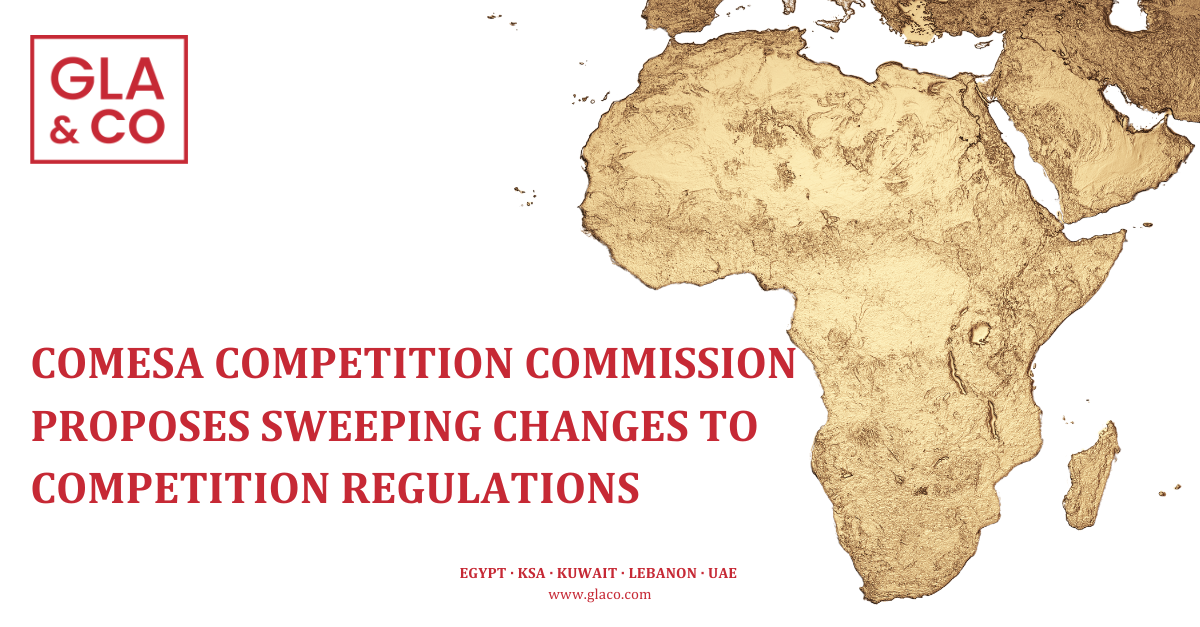
COMESA Competition Commission Proposes Sweeping Changes to Competition Regulations
The Common Market for Eastern and Southern Africa’s (“COMESA”) Competition Commission (“CCC”) is set to implement significant amendments to its competition regime with the release of the Draft COMESA Competition Regulations (“Draft Regulations”).
The proposed changes aim to align the regulations with current market dynamics, fostering greater efficiency, economic growth, and consumer benefits. According to COMESA’s press release, Stakeholders had until February 14, 2024, to provide comments on the Draft Regulations, emphasizing the importance of understanding the potential impact on organizations in the competitive landscape.
In this article, we briefly touch on the key proposed amendments detected under the Draft Regulations.
The proposed amendments signify a substantial evolution in COMESA’s competition regulations, aiming to enhance investigative powers, introduce novel but relevant concepts, and align with international best practices. Stakeholders should closely monitor these developments, anticipating potential impacts on competition dynamics within the COMESA region.
Merger Control
The definition of a “merger” is refined under Article 36 to require a lasting change of control. As such, joint ventures can qualify as mergers if they function as autonomous economic entities on a lasting basis. This is more closely related to the general merger control principal of a “full-function” joint venture.
There have been proposed revisions to the financial thresholds with industry-specific determinations. However, the exact financial thresholds have not been decided. Further, it is provided under Article 39 that the CCC can now stop the clock on the 120th day of the merger investigation period if parties fail to respond within specified timelines, with a maximum extension of 90 days.
Suspensory Merger Control Regime
The shift from a non-suspensory to a suspensory regime introduced under Articles 37 and 38 requires CCC approval before implementing a notifiable merger, potentially impacting the timing of transactions.
In addition, Article 41 provides that the CCC can refer mergers to national competition authorities if competition reduction is significant in a specific member state.
Determination of Dominance
The Draft Regulations introduce a “presumption” of dominance if an undertaking holds a market share of at least 30% in the relevant market. Factors such as market definition, barriers to entry, competition history, and production capacity will be considered in assessing a party’s dominance position in the market.
Binding Member States
Member States are restricted from relying on their own local laws for competition-related conduct covered under the CCC’s scope, in an aim to reinforce the concept of a one-stop-shop for COMESA. The goal is to achieve competition harmony in the region as a whole through one set of competition regulations implemented against all member states.
Digital Mergers and Specific Financial Thresholds
The Draft Regulations propose a notification requirement for digital market industry mergers exceeding a specified transaction value.
Parties to a merger involving digital platforms or markets are obliged under Article 36 (6) of the Draft Regulations to notify the CCC of their merger where:
- a) at least one of the parties to the merger has operations in at least two Member States; and
- b) the merger meets the prescribed transaction value.
Public Interest Grounds
Specific public interest grounds are introduced, indicating that the CCC in accordance with Article 42 of the Draft Regulations will equally weigh public interest alongside competition considerations when assessing mergers.
Abuse of Economic Dependence
A novel concept of “economic dependence” is introduced under Article 33, focusing on abuse by “gatekeepers” affecting competition in the Common Market. However, the lack of a clear definition for “gatekeepers” could pose a challenge.
Extended Public Interest Mandate
The Draft Regulations delineates the public interest mandate, including environmental and innovation considerations, with the CCC placing greater weight on the competition test. Whereas, the CCC would investigate through conducted tests the substantial lessening or prevention of competition relative to the public interest.
Notification of Greenfield Joint Ventures
Greenfield joint ventures will become notifiable under the Draft Regulations if intended to operate in two or more Member States, aligning with CCC’s current informal practice.
Market Inquiries
The Draft Regulations grants the CCC under Article 24 the power to conduct formal market inquiries, expanding the CCC’s scope to investigate and address competition concerns. This grants the CCC the authority to gather information, initiate investigations, propose remedies, recommend policy changes, and take various actions based on market inquiry findings.
Dawn Raids
The proposed amendments introduce the concept of dawn raids, specifically under Article 25 of the Draft Regulations allowing the CCC to conduct searches on the premises of undertakings when there is a reasonable belief that relevant information is present. Unlike previous regulations, no search warrant is required, enabling the CCC to inspect, copy documents, and interrogate representatives without prior authorization.
Leniency Programme
A new leniency programme is proposed under Article 35, offering immunity to undertakings for practices prohibited under Article 30. The CCC’s decision on leniency becomes binding on the applicant, member state governments, and state courts, creating a shield against prosecution by national competition authorities.
Anti-competitive Agreements
The Draft Regulations introduce under Article 29 considerations of public interest factors when determining the anti-competitive nature of agreements. This includes assessing the impact on employment, competitiveness of small and medium enterprises, ability to compete internationally, and environmental sustainability.
Imposition of Fines and Interim Orders
The CCC gains authority to impose fines of up to 10% of turnover for various violations and issue interim orders directing undertakings to cease and desist pending investigation outcomes.
Conclusion
These proposed changes signal a comprehensive effort by CCC to adapt to evolving market trends and enhance the effectiveness of competition regulations within the COMESA region. Interested parties have until February 14, 2024, to submit their comments on the draft regulations. The Draft Regulations would enter into force following the approval issued by the COMESA council.
Authors: Asad Ahmad, Head of Anti-trust & Competition Rana Moustafa, Associate
For further information, please contact Managing Partner Alex Saleh (alex.saleh@glaco.com) or Head of Anti-trust & Competition Asad Ahmad (asad.ahmad@glaco.com)

